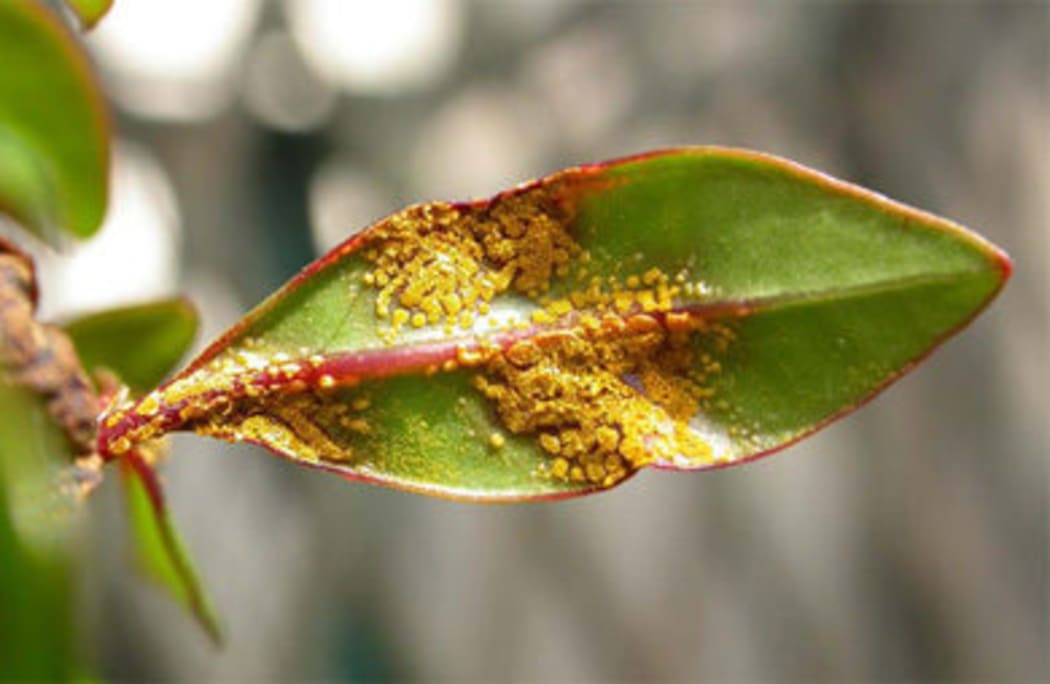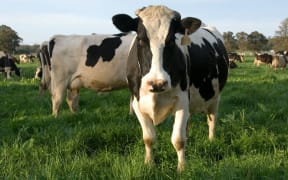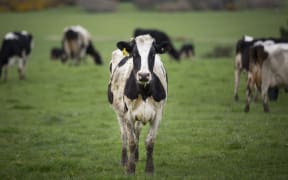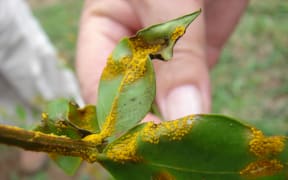A Māori farm manager on the East Coast says Mycoplasma bovis could devastate the local economy - an area which is still coming to grips with the threat of myrtle rust.

A disinfection point sign on a farm under restricted movement notice due to Mycoplasma Bovis. Photo: RNZ Maja Burry
Pakihiroa Farms general manager Hilton Collier said the East Coast Māori farming community was trying to rally together - despite the information vacuum created by the Ministry of Primary Industries.
"Generally speaking, we are floundering as much as the wider industry is, struggling to get to terms with what it means to us," Mr Collier said.
"At least there's greater communication amongst the [Māori farming] community - and we're making sure that everyone is at least informed when he have properties under notices of direction of suspicious results."
He was aware of one Māori-owned farm in the area under a notice not to move stock from MPI.
The Mycoplasma bovis bacteria can cause diseases in cattle, such as untreatable mastitis, abortions, pneumonia and arthritis. But it does not infect humans and it does not present a food safety risk.
Many Māori farms in the area had moved into either calf-rearing of farming bulls with dairy origins, Mr Collier said.
"This area while we breed and buy a lot of bulls locally we also bring bulls in from the wider part of the North Island.
"Those are the properties that have been associated with suspicious test results or under notices from the direction of MPI."
Māori farmers were moving to close their boundaries and not bring in outside stock, he said.
"The East Coast economy doesn't have the resilience to withstand those shocks, if we see wide-scale slaughter of cattle."

Myrtle rust on a plant. Photo: Supplied / DOC
Māori agriculture in the area was also reliant on harvesting mānuka honey - which was under threat from myrtle rust.
"The connection to the land is probably more significant to the economics of land use," he said.
"It's just a double whammy, a double shock to our economy."
Onuku Māori Lands Trust general manager Angela Wharekura helps to administer four dairy farms and one dry stock farm on Māori trust land near Rotorua.
"Now that it's as close as Cambridge we're really concerned," Mrs Wharekura said.
Earlier this week, the trust received the 2018 Ahuwhenua Trophy BNZ Māori Excellence in Farming Award for dairy.
However, their attention had quickly turned to dealing with the spread of Mycoplasma bovis.
Mrs Wharekura said their farmers were on high alert.
"The difficulty we have also is we have a number of dairy grazers on [our] farms that come from other farms."
Their farms could become completely self-contained and move away from dairy grazing, Mrs Wharekura said.
"We're just going to have to weigh up a lot of options and there's a big impact on us."
Part of the problem was that farmers did not know the extent of how far Mycoplasma bovis had spread.
"If we had some accurate testing we could test our stock and feel comfortable but we can't even do that," Ms Wharekura said.
It was difficult to tell if other farmers were being proactive about the disease, she said.
"We need to introduce better traceability and better record keeping within the industry - we need to certainly up our game in better administration and better record-keeping of stock movements."






